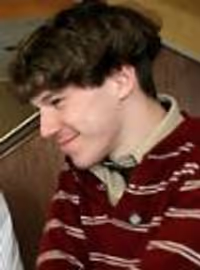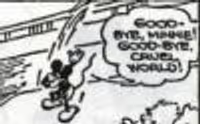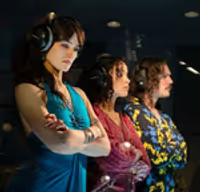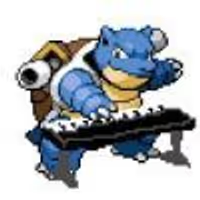What is [insert title of show]? Why is it called that?
lachri5
Featured Actor Joined: 1/4/11
#1What is [insert title of show]? Why is it called that?
Posted: 12/19/21 at 6:29pm
Some shows, once you've seen it, you understand what the title means, like Fun Home, Dogfight, Fiddler on the Roof, Hedwig and the Angry Inch. Then there are shows, I sort of get what it's trying to say, but if you ask me, I can't articulate for the life of me. I know many of these are supposed to be subjective, "no correct answers", but still can anyone share your understanding on some of the these? Also what are some show titles that have been puzzling to you (it doesn't have to be a musical)?
- [ A Little Night Music: why? what does Mozart have anything to do with the story? ] SOLVED
- [ Evening Primrose: why again? ] SOLVED
- [ Merrily We Roll Along: what does it even mean? ] SOLVED
- [ Falsettos: what the heck is that, and why are they marching? ] SOLVED
- The Light in the Piazza: what is the light in the piazza?
- [ Girl from the North Country: who is the girl from the north country? ] SOLVED
- [ Godspell: what is a godspell? it's not a word. ] SOLVED
- In Trousers: I've never seen it. So maybe the explanation is somewhere in the script?
- The Fantasticks: Why coin such a word? What does it mean?
- [ Nine: The original movie 8 1/2 means it was Federico Fellini's 8th and a half work, he made 7 movies and 2 episodes up to this point. How did that become Nine? Does it mean the stage musical count as half a work, and adds up to 9. ] SOLVED
(Edited to add 3 more show titles.)
Updated On: 12/21/21 at 06:29 PM
adotburr
Broadway Star Joined: 10/6/21
#2What is "title of show"? Why is it called that?
Posted: 12/19/21 at 6:36pm
No idea what the show is actually about, but Girl from the North Country is named after a Bob Dylan song with a similar title.
Dollypop
Broadway Legend Joined: 5/15/03
#3What is "title of show"? Why is it called that?
Posted: 12/19/21 at 6:41pm
lachri5 said: "Some shows, once you've seen it, you understand what the title means, like Fun Home, Dogfight, Fiddler on the Roof, Hedwig and the Angry Inch. Then there are shows, I sort of get what it's trying to say, but if you ask me, I can't articulate for the life of me. I know many of these are supposed to be subjective, "no correct answers", but still can anyone share your understanding on some of the these? Also what are some show titles that have been puzzling to you (it doesn't have to be a musical)?
- A Little Night Music: why? what does Mozart have anything to do with the story?
- Evening Primrose: why again?
- Merrily We Roll Along: what does it even mean?
- Falsettos: what the heck is that, and why are they marching?
- The Light in the Piazza: what is the light in the piazza?
- Girl from the North Country: who is the girl from the north country?
- Godspell: what is a godspell? it's not a word.
"
The word GODSPELL dated back to the Middle Ages. It morphed into Gospel, or more colloquially, "Good News"
#4What is "title of show"? Why is it called that?
Posted: 12/19/21 at 6:49pm
This post is totally [title of show].
lachri5
Featured Actor Joined: 1/4/11
#5What is
Posted: 12/19/21 at 7:04pm
Dollypop said: "lachri5 said: "Some shows, once you've seen it, you understand what the title means, like Fun Home, Dogfight, Fiddler on the Roof, Hedwig and the Angry Inch. Then there are shows, I sort of get what it's trying to say, but if you ask me, I can't articulate for the life of me. I know many of these are supposed to be subjective, "no correct answers", but still can anyone share your understanding on some of the these? Also what are some show titles that have been puzzling to you (it doesn't have to be a musical)?
- A Little Night Music: why? what does Mozart have anything to do with the story?
- Evening Primrose: why again?
- Merrily We Roll Along: what does it even mean?
- Falsettos: what the heck is that, and why are they marching?
- The Light in the Piazza: what is the light in the piazza?
- Girl from the North Country: who is the girl from the north country?
- Godspell: what is a godspell? it's not a word."
The word GODSPELL dated back to the Middle Ages. It morphed into Gospel, or more colloquially, "Good News"
That makes sense. Thanks!
I think I also figured out Evening Primrose. Since this flower only blossoms late in the day through the night, it does resemble the main characters who live in a department store and only come out at night.
JasonC3
Broadway Legend Joined: 4/22/21
lachri5
Featured Actor Joined: 1/4/11
#7What is
Posted: 12/19/21 at 7:40pm
JasonC3 said: "Isn't he light in the piazza the sunlight streaming into it? If I recall when the lyric is sung in the song the light in the staging is very apparent.
"I know what the sunlight can be
The Light, the Light in the Piazza ""
Sure. I guess I'm trying to understand what the metaphor is? What does the sunlight have anything to do with Clara, Fabrizio, Margaret. Maybe I should read the lyrics again.
A few more puzzling musicals that I'm not as familiar with:
- In Trousers: I've never seen it. So maybe the explanation is somewhere in the script?
- The Fantasticks: Why coin such a word? What does it mean?
- Nine: The original movie 8 1/2 means it was Federico Fellini's 8th and a half work, he made 7 movies and 2 episodes up to this point. How does that became Nine? Does it mean the stage musical count as half a work, and adds up to 9.
rg7759
Broadway Star Joined: 5/6/16
Alex Kulak2
Broadway Legend Joined: 9/11/16
#10What is
Posted: 12/19/21 at 8:52pm
lachri5 said: "A Little Night Music: why? what does Mozart have anything to do with the story?"
As a matter of fact, quite a bit. While the plot is based on an Ingmar Bergman film, the structure and music takes a lot of inspiration from Mozart's opera buffas, like Marriage of Figaro and Cosi fan tutte. The most 1:1 comparison is "A Weekend In The Country", which is a pastiche of Mozart's big polyphonic ensemble numbers that usually appeared at the end of the act.
#11What is
Posted: 12/19/21 at 9:02pm
lachri5 said: "Some shows, once you've seen it, you understand what the title means, like Fun Home, Dogfight, Fiddler on the Roof, Hedwig and the Angry Inch. Then there are shows, I sort of get what it's trying to say, but if you ask me, I can't articulate for the life of me. I know many of these are supposed to be subjective, "no correct answers", but still can anyone share your understanding on some of the these? Also what are some show titles that have been puzzling to you (it doesn't have to be a musical)?
- A Little Night Music: why? what does Mozart have anything to do with the story?
- [ Evening Primrose: why again? ] SOLVED
- Merrily We Roll Along: what does it even mean?
- Falsettos: what the heck is that, and why are they marching?
- The Light in the Piazza: what is the light in the piazza?
- Girl from the North Country: who is the girl from the north country?
- [ Godspell: what is a godspell? it's not a word. ] SOLVED
"
Not really. The home was not that fun, there was no dogs in dogfight, the fiddler was barely in it and the inch seemed enthusiastic rather than angry. Please explain.
lachri5
Featured Actor Joined: 1/4/11
#13What is
Posted: 12/19/21 at 9:20pm
Alex Kulak2 said: "lachri5 said: "A Little Night Music: why? what does Mozart have anything to do with the story?"
As a matter of fact, quite a bit. While the plot is based on an Ingmar Bergman film, the structure and music takes a lot of inspiration from Mozart's opera buffas, likeMarriage of FigaroandCosi fan tutte. The most 1:1 comparison is "A Weekend In The Country", which is a pastiche of Mozart's big polyphonic ensemble numbers that usually appeared at the end of the act."
Thanks. But then why this piece instead of any other Mozart work? There are tons to choose from: https://en.wikipedia.org/wiki/List_of_compositions_by_Wolfgang_Amadeus_Mozart Was Sondheim like, I want to name the show after one Mozart piece, and then went through the whole catalog and see which title he liked the best?
#14What is
Posted: 12/19/21 at 9:35pm
A Little Night Music is also a reference to all the sex that is and is not happening throughout the show, which also mostly takes place at night, along with being a self-deprecating joke about its own score (which is also a pastiche of the frilly, whipped-cream operettas that were popular in the time the show is set), not to mention being a bit of a joke about the show’s semi-highbrow nature (would a true classical fan call the piece by its English name) and its characters, who are distinctly bougie.
Similarly, Merrily We Roll Along, though it shares its title with the play it’s based on, is about the passage of time and how it embitters people, and is thus ironic (they roll along anything but merrily). It’s also the name of a popular children’s song, which ties into the show’s search for the earnest optimism that young people have.
Nine is indeed meant to be a “half Fellini”, and the idea behind Falsettos is that the male characters have trouble growing up and instead are stuck as bratty, petulant children. Children have high voices, thus “Falsettos”. Not to mention the concept of the “gay voice”, which is typically (or is perceived as) flutey and high.
Alex Kulak2
Broadway Legend Joined: 9/11/16
#15What is
Posted: 12/19/21 at 9:43pm
lachri5 said: "Alex Kulak2 said: "lachri5 said: "A Little Night Music: why? what does Mozart have anything to do with the story?"
As a matter of fact, quite a bit. While the plot is based on an Ingmar Bergman film, the structure and music takes a lot of inspiration from Mozart's opera buffas, likeMarriage of FigaroandCosi fan tutte. The most 1:1 comparison is "A Weekend In The Country", which is a pastiche of Mozart's big polyphonic ensemble numbers that usually appeared at the end of the act."
Thanks. But then why this piece instead of any other Mozart work? There are tons to choose from:https://en.wikipedia.org/wiki/List_of_compositions_by_Wolfgang_Amadeus_MozartWas Sondheim like, I want to name the show after one Mozart piece, and then went through the whole catalog and see which title he liked the best?"
I was curious, so I decided to consult Book 1 of Sondheim's Hat books (which I'll now be referring to as the Holy Texts). Sondheim says that Ingmar Bergman gave him the rights to adapt Smiles of a Summer Night on the condition that he use a different title. A Little Night Music was the original title he had come up with for Evening Primrose, and he thought it fit this show, probably because A: "Little Night", refers to the midnight sun in Sweden, where the sun is visible pretty much all day in the summer, and B: "Music" clues Joe Theatregoer in that this is a musical and he always has a good time at a musical.
Alex Kulak2
Broadway Legend Joined: 9/11/16
#16What is
Posted: 12/19/21 at 9:51pm
Some of the other symbolism behind the title for Nine (besides it being a half-Fellini, which makes sense; half of the show is his, the other half is Yeston's and Kopit's):
1. The young version of Guido we see in the show is nine years old
2. The show as a whole is about Guido's relationship with the women in his life, and there are nine principal women we see him interact with, both in his memories and in reality.
#17What is
Posted: 12/20/21 at 7:34am
Fun Home stands for FUNERAL Home. The kids explain it early in the show.
carnzee
Broadway Star Joined: 9/2/11
lachri5
Featured Actor Joined: 1/4/11
lachri5
Featured Actor Joined: 1/4/11
#21What is
Posted: 12/20/21 at 12:06pm
darquegk said: "My father’s sarcastic review of The Light in the Piazza: “not much lightness and zero pizza.”"
Lol. Maybe I'm thinking too much into it. Like ColorTheHours048 said, maybe it's just referring to the beautiful view of sun light in a piazza. It doesn't have to mean something very specific.
rattleNwoolypenguin
Broadway Legend Joined: 10/11/11
#22What is
Posted: 12/20/21 at 2:28pm
Light in the Piazza is originally a novella from the 50s so I think it reflects a very interpretable kind of title from that time period. Like a classy way of saying “hope”
Guittel’s song is trying to expand on his interpretation of it. And give it as a moment to Clara (I’ve always found it too on the nose and I don’t buy Clara being this introspective)
A Little Night Music has always been the perfect title for it but I think it doesn’t intrigue people easily. I think the title makes people not familiar with it write it off.
Merrily We Roll Along has always had a sarcasm in its name. Cause it’s “Merrily we roll along making human mistakes through life la la la”
#24What is
Posted: 12/21/21 at 9:24am
[title of show]: the braces indicate a "working title"; one that is not yet finalized. In this case, the show is so early in development that they don't even have enough of a concept to create a title that's descriptive enough beyond the basic, "title of show" (humorously lacking even capital letters).
Merrily We Roll Along: Kaufman and Hart's play is about a man who's lost the idealistic values of his youth. Idealistic values similar (but not directly related) to those of the optimistic lyrics of the Great Depression era song, "Merrily We Roll Along" (not the children's song), by Charlie Tobias, Murray Mencher, and Eddie Cantor (1935). Because the plot evolves backward through time, that idealism is what the play is moving "toward".
The phrase "merrily we roll along" demonstrates the optimism and idealism of moving through life without care, even though times are bad. Sondheim/Furth kept the title and based their musical on Kaufam/Hart's play.
#25What is
Posted: 12/21/21 at 1:01pm
rattleNwoolypenguin said: "Guittel’s song is trying to expand on his interpretation of it. And give it as a moment to Clara (I’ve always found it too on the nose and I don’t buy Clara being this introspective)”
I think the point of the song is that Margaret sees, for the first time, how very certain and clear Clara is about her feelings. Neither she nor the audience has seen Clara this introspective before.
In terms of the plot of the show, there's a lot riding on this song - it has to convince Margaret to change her mind completely about Clara and the possibilities for her future. (I've always thought it was vaguely comparable to "A Boy Like That/I Have a Love," in that the outcome of the show pivots on the persuasive power of one song.)
Videos









